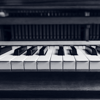The Complete Piano Ownership Guide in Sydney: From Buying to Caring for Your Piano
Owning a piano is one of the most rewarding experiences for any music lover. Whether you’re a beginner, a parent supporting your child’s music journey, or a professional pianist, a piano is more than just an instrument — it’s a lifelong companion. But with this joy comes responsibility: from selecting the right piano, to moving it safely, tuning it regularly, and providing ongoing maintenance.
At Magico Piano Tuning in Sydney, we’ve worked with pianos of all ages, brands, and conditions. This guide will introduce you to the essentials of piano ownership in Sydney, covering everything you need to know to keep your instrument sounding and performing at its best.
Choosing the Right Piano for Your Home
The first step in piano ownership is selecting the right instrument. Sydney buyers often consider well-known brands like Yamaha, Kawai, and Alex Steinbach. Each has its strengths:
Yamaha U1: A reliable choice for schools and professionals, known for its bright tone.
Alex Steinbach: Popular among families in Sydney for their warm sound and elegant cabinets.
Kawai: Valued for their smooth touch and consistency.
When buying a piano, ask:
Is the piano new or second-hand?
Has it been regularly tuned and serviced?
Does the seller provide a recent piano inspection report?
💡 Pro tip: Always inspect the action, keys, and overall condition. Many second-hand pianos in Sydney come from private homes and may not have been tuned for 10–20 years. A professional tuner can give you a realistic assessment before you buy.
Moving a Piano Safely in Sydney
Once you’ve chosen your piano, moving it into your home is the next challenge. Pianos are heavy, delicate, and contain thousands of moving parts. Attempting to move a piano without professional help can result in serious damage — to both the piano and your property.
When organising a piano move in Sydney:
Always use specialist piano movers with the right equipment.
Avoid placing the piano near windows or direct sunlight.
Keep it away from heaters, air conditioning vents, and damp areas.
📌 Fun fact: Many pianos in Sydney drift out of tune more quickly in the first few weeks after a move due to changes in humidity and temperature. This is normal — schedule a tuning within 2–4 weeks of moving.
Piano Tuning: The Heart of Ownership
Every piano, whether new or old, needs regular tuning. Tuning ensures that the strings are adjusted to the correct pitch (usually A440 or A442 Hz) and that the piano produces a harmonious sound.
How often should you tune a piano in Sydney?
New pianos: 2–4 times in the first year.
Established pianos: At least twice per year (more if used heavily or in schools).
After moving or climate changes: Always tune.
Without regular tuning, a piano can drop in pitch, requiring a pitch raise — a longer, more expensive process.
At Magico Piano Tuning, we provide:
Standard piano tuning (A440).
Pitch raising for neglected pianos.
Full aural tuning for precision.
Maintenance Beyond Tuning: Regulation, Voicing & Repairs
Many Sydney piano owners believe tuning is the only care a piano needs. In reality, long-term piano ownership also involves regulation, voicing, and repairs.
Regulation: Adjusts the action (hammers, keys, dampers) so the piano feels responsive.
Voicing: Reshapes or needles the hammers to refine the tone. This is essential if your piano sounds too harsh or too mellow.
Repairs: Fixing sticking keys, squeaky pedals, or broken strings.
Regular maintenance not only improves the piano’s performance but also extends its lifespan.
Caring for Your Piano in Sydney’s Climate
Sydney’s changing seasons — hot summers, damp winters — can affect a piano more than you might expect. Wood, felt, and strings are sensitive to humidity and temperature fluctuations.
To protect your piano:
Keep it in a stable environment with minimal direct sunlight.
Use a dehumidifier if your home is prone to moisture.
Avoid positioning the piano against an external wall.
Common Problems Piano Owners Face
Even with regular care, every piano owner eventually encounters small issues:
Keys sticking due to humidity or dirt buildup.
Pedals squeaking or feeling loose.
Uneven tone from worn hammers.
The good news: Most of these are minor and can be fixed during a routine service. For bigger issues, like cracks in the soundboard or major regulation needs, professional intervention is essential.
When to Call a Professional Piano Tuner
DIY piano tuning videos might seem tempting, but tuning and maintaining a piano is a specialised skill that takes years to master. Attempting it yourself can cause more harm than good.
Call a professional tuner when:
Your piano hasn’t been tuned in 12+ months.
The pitch has dropped noticeably.
Keys or pedals aren’t functioning properly.
You’ve just moved house.
At Magico Piano Tuning, we’ve worked with pianos that haven’t been touched in 30+ years, restoring them to full musical health.
Final words: Owning a Piano in Sydney
Piano ownership is a journey — from choosing the right instrument, moving it into your home, tuning it regularly, and caring for it over decades. By staying on top of tuning, regulation, and climate care, you’ll enjoy rich, beautiful music for generations.
If you’re in Sydney and need expert help with your piano, Magico Piano Tuning is here to guide you every step of the way. Whether it’s your first tuning or a full restoration, we provide professional, reliable service tailored to your piano’s needs.
👉 Book your piano tuning in Sydney today and keep your instrument sounding its best.

